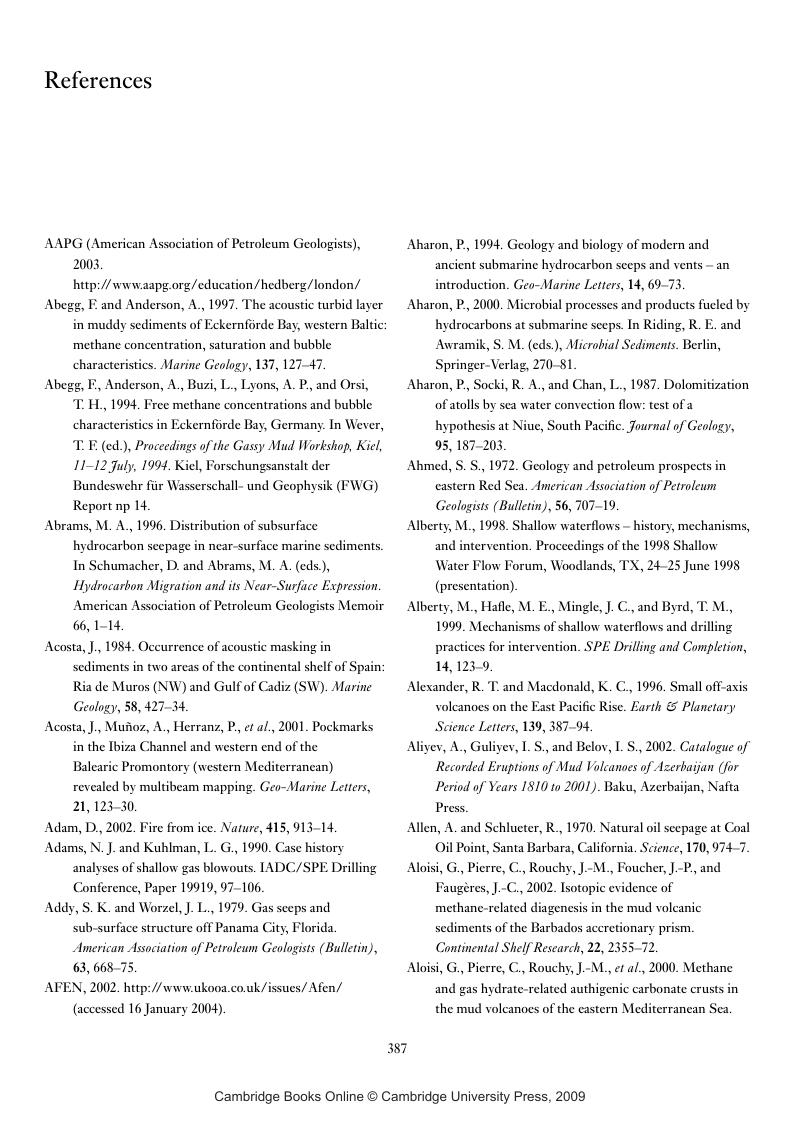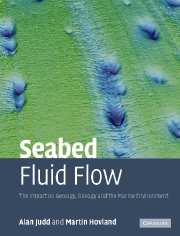Book contents
- Frontmatter
- Contents
- Preface
- Acknowledgements
- Note on the accompanying website
- List of maps on the accompanying website
- List of contributed presentations on the accompanying website
- 1 Introduction to seabed fluid flow
- 2 Pockmarks, shallow gas, and seeps: an initial appraisal
- 3 Seabed fluid flow around the world
- 4 The contexts of seabed fluid flow
- 5 The nature and origins of flowing fluids
- 6 Shallow gas and gas hydrates
- 7 Migration and seabed features
- 8 Seabed fluid flow and biology
- 9 Seabed fluid flow and mineral precipitation
- 10 Impacts on the hydrosphere and atmosphere
- 11 Implications for man
- References
- Index
- References
References
Published online by Cambridge University Press: 14 October 2009
- Frontmatter
- Contents
- Preface
- Acknowledgements
- Note on the accompanying website
- List of maps on the accompanying website
- List of contributed presentations on the accompanying website
- 1 Introduction to seabed fluid flow
- 2 Pockmarks, shallow gas, and seeps: an initial appraisal
- 3 Seabed fluid flow around the world
- 4 The contexts of seabed fluid flow
- 5 The nature and origins of flowing fluids
- 6 Shallow gas and gas hydrates
- 7 Migration and seabed features
- 8 Seabed fluid flow and biology
- 9 Seabed fluid flow and mineral precipitation
- 10 Impacts on the hydrosphere and atmosphere
- 11 Implications for man
- References
- Index
- References
Summary

- Type
- Chapter
- Information
- Seabed Fluid FlowThe Impact on Geology, Biology and the Marine Environment, pp. 387 - 441Publisher: Cambridge University PressPrint publication year: 2007



